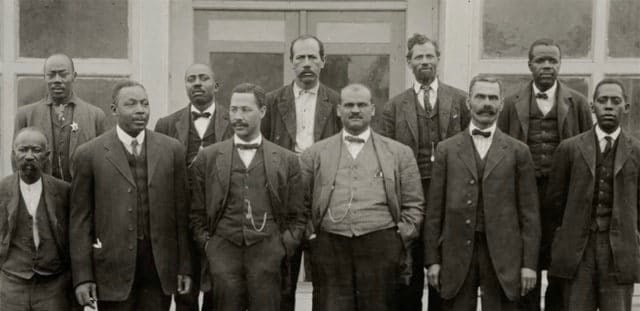Did You Know That between 1861-1909 Over 2,000 Black Men Were Elected to Public Office?
UNTOLD, HIDDEN, OMITTED HISTORY
9/4/20252 min read


Did You Know That between 1861-1909 Over 2,000 Black Men Were Elected To Public Office?
by Maurice Woodson
Most Americans don’t. That’s no surprise—K-12 schools in the U.S. have long failed to teach this vital part of American history. In fact, many teachers themselves were never taught about it. This isn’t an oversight—it’s a reflection of how Black history has been systematically ignored, erased, or distorted.
So, what was the Reconstruction era?
Reconstruction (1863–1877) was the period following the Civil War when the United States attempted to rebuild and redefine itself—particularly in the South. One of the most revolutionary aspects of this era was the active and unprecedented participation of Black Americans in political, economic, and social life. Many of these individuals were formerly enslaved people who now, for the first time, had the rights of citizenship—including the right to vote and hold office.
Between 1863 and 1865, the Black community mobilized on a massive scale. They organized meetings, held parades, submitted petitions, and demanded legal and political rights. Their energy and determination helped reshape the country, at least temporarily.
Black Americans began to win elections—local, state, and federal. Their messages of equality, justice, and economic opportunity resonated with many, especially with the growing power of Black voters. Over 2,000 Black men were elected to public office during Reconstruction, including seats in state legislatures, and yes, even in the U.S. Congress.
Hiram Revels made history as the first Black U.S. Senator in 1870, representing Mississippi. Although initially blocked from taking his seat, he eventually prevailed. Blanche K. Bruce followed, elected to the U.S. Senate in 1875. These achievements were monumental—and deeply threatening to the white power structure.
In response, white supremacist groups like the Ku Klux Klan—often working hand-in-hand with conservative politicians—launched a campaign of terror. They assassinated over 35 Black elected officials. Through violence, intimidation, and a slew of new discriminatory laws, they began to systematically disenfranchise Black voters and dismantle the political gains made during Reconstruction.
By the end of the 1870s, the era was effectively over. Black politicians were forced out—by threat, by law, or by murder. It would be nearly a century before Black Americans would begin to regain significant political ground on the national stage.
